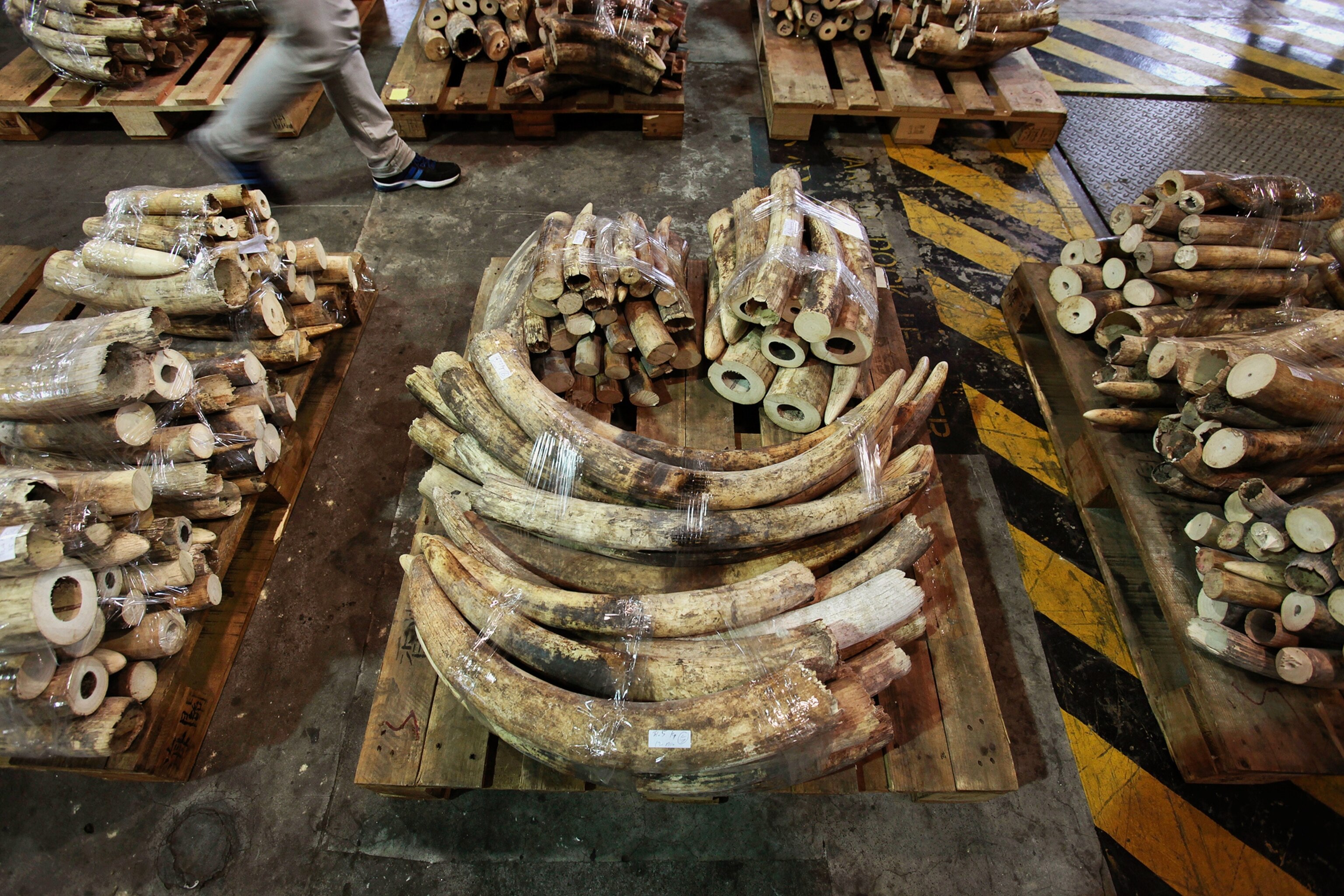
Hong Kong Announces World's Biggest Ivory Burn
Chinese region joins other countries in recent trend of ivory destruction.
Twenty-eight tons of Hong Kong's elephant ivory will soon go up in flames—the largest stockpile ever burned, the semi-autonomous Chinese region announced Thursday.
The decision makes Hong Kong the latest government to destroy its ivory, following recent moves by the United States and the Philippines.
In June 2013, the Philippines crushed five tons of seized ivory, becoming the world's first ivory-consuming nation to destroy its national ivory stock.
The act comes in the wake of the country's being identified by National Geographic magazine as having a longtime ivory-trafficking problem.
Hong Kong's ivory will be destroyed over a period of two years, and any ivory confiscated in the future will be regularly disposed of, Hong Kong's Endangered Species Advisory Committee Chairman Paul Shin said in a press conference.
"The committee strongly calls upon countries all over the world to make [a] concerted effort in combating illegal poaching of elephants and to undertake vigorous measures to protect elephants," Shin said. (Watch a video of Shin's announcement.)
A 1989 Convention on International Trade in Endangered Species of Wild Fauna and Flora (CITES) treaty banned all trade in elephant ivory, but poaching continues to feed black market sales.
According to the Wildlife Conservation Society, about 96 elephants a day are killed illegally in Africa, largely because of the demand for their ivory. Much of that ivory ends up in China, where it is carved and sold domestically or abroad. (Read "Ivory Worship" in National Geographic magazine.)
Due to poaching and other causes, the African elephant population has fallen to an estimated 500,000 elephants, down from as many as three to five million in the 1930s and '40s, according to the World Wildlife Fund (WWF).
"Extraordinary" Action
In recent years, several countries have made high-profile statements by burning or crushing ivory.
In January, the Chinese government pulverized six tons of ivory in Dongguan, and Denver, Colorado, was the site of a highly publicized crush of six tons of confiscated ivory last November. The central African country of Gabon has also set its ivory aflame. (Related: "Massive Pile of Elephant Ivory Burned in Gabon—A First.")
But Patrick Bergin, head of the nonprofit group African Wildlife Foundation, said Hong Kong's action is "extraordinary" because of the centuries-old culture of ivory worship there.
Bergin said that Hong Kong's public destruction will discourage ivory collectors from going after more ivory. (See pictures of the "ivory wars" in National Geographic magazine.)
"Hong Kong, as a major destination and transit hub for trafficked ivory, will soon join that growing list of leaders that are placing a higher value on a living elephant than pieces of a dead one."